While at this point my family has decided what we want to do about cars, I’m still thinking about why the market for moderately larger cars is so awkward.
One issue with three-row vehicles is that the third row is hard to get into. If that row is rear-facing, like in a traditional station wagon, you get in through the rear door. If it is front facing, you either remove one of the seats from the middle row, or have a way to slide or fold them out of the way. This is awkward for the same reason that the rear seats in a two door car are awkward, and there we fix it by adding a second row of doors. Why don’t we see six door cars?
Car manufacturers have made some:
Mercedes-Benz w124
six-door, source
Checker Aerobus, also
produced with eight doors
You also see aftermarket conversions:
These are mostly very long cars, but it seems to me like if a manufacturer wanted to make a six door with a more restrained length they could. For example, a Honda Fit is 161″ and a typical rear seat pitch is 35″, so a hypothetical six-door version would be something like 196″. This is long, but still well within the standard range: it’s 6“ shorter than the Toyota Sienna and 8” shorter than the Honda Odyssey or Chrysler Pacifica.
Overall, it looks like this is something that can be done, has been done, and hasn’t been popular. Maybe I’m weird in liking the six door look?
Comment via: facebook

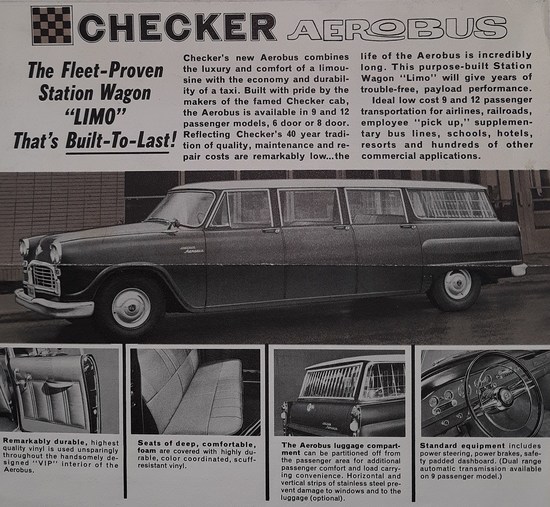
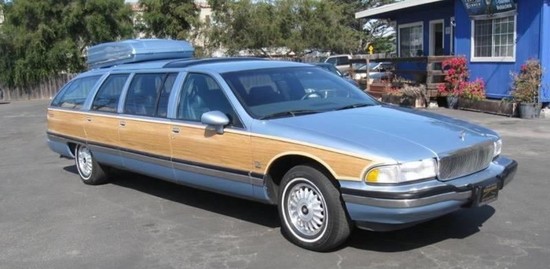
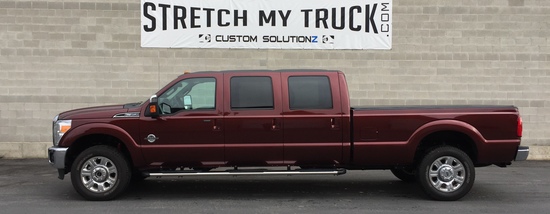
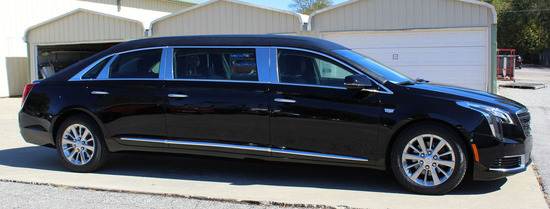
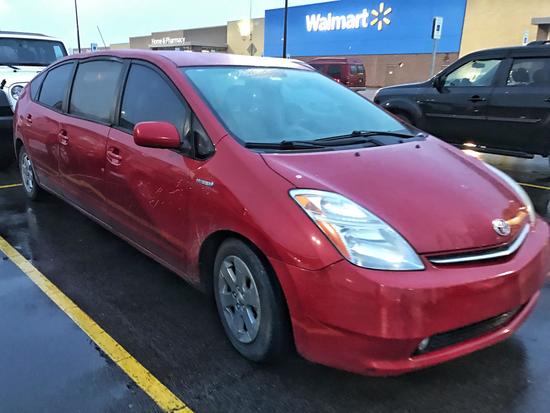
I doubt the lack of 6-door cars has much to do with aesthetics. Doors and tight door seals are some of the more complex and expensive portions of the car body. Doors also pose challenges for crash safety as you have a large opening in the car body weakening the main body’s structural integrity in an accident. I suspect that the reason there are so few cars with 6 doors is the extra cost of manufacturing cars. That would lead to increased car costs. Most purchasers don’t value the extra convenience of the additional doors enough relative to the added price. Any company producing such a car would find a very small market which might make it not worth it to the manufacturer.
What if it was just one big door? That would treat the problem J_Thomas_Moros raised. It wouldn’t work with a regular door, it would be too long and awkward. I don’t think it would work well with sliding doors. But, I think it can work with doors that open upwards, like the Tesla model X:
How is a minivan not the optimized solution to this problem? One long sliding door, 3 rows, good fuel efficiency and safety and handling. And a plug in hybrid. It’s what waymo went with.
.I am not saying it’s the best possible but it’s an optimized design to solve this problem.
A minivan loses a 2nd-row seat for access to the second row.
So its 2 passengers first and second row, 3 the third? 7 total? Or parents and 4-5 children? That’s going to handle most use cases.
You know how they say in software and engineering in general to focus your resources on the 90 percent case.
Long cars may be difficult to park, if most parking slots are the size of the average car. (No idea how much that applies to USA.)
That might be an argument in favor of your proposed “six-door but not too long”, unless it is the case that any car with six doors is already too long and the extra few inches don’t significantly change the outcome. Like, you get less space for luggage, but finding a parking place remains nearly impossible anyway.
(My wife loved having a tiny car while we didn’t have kids, precisely because parking it was extremely easy.)
I recently switched from a crossover SUV (Nissan Rogue Sport) to a pickup (Sierra 2500 with crew cab and 8′ bed). It is about 22 ft long, and yes, it is both harder to park and usually unable to fit fully in a standard parking spot. It overhangs by only about 2 ft usually, though, so if it really is feasible to make a six door vehicle that is about 200″ long, it would still fit.
In most situations where people need more seats, those seats are primarily for kids, not the people buying the vehicle or other adults, and that makes the issue of every row having its own doors less important. Your kids just get used to climbing over and around things, and it’s no big deal. The people consistently buying vehicles for more adults are mainly fleets buying vans and limos.
Also: I know you mentioned this in the original post in terms of car vs SUV, but adding length, doors, and weight will drop fuel efficiency, which may cause legal issues. Maybe not in the US, IDK, but car company platforms are global, and other countries have much stricter standards. This may make it just not worth it for what they expect the market size to be.
I wouldn’t be too surprised if we started seeing vehicles like that in the 2030s though, once self-driving vehicles become common enough (I still think it’s unlikely, just much less unlikely). People and companies have been talking for a long time about how much design freedom not needing a driver gives you, and how you can make reconfigurable interiors. Since it’s likely that ridesharing and other fleet vehicles will make up a larger proportion of cars in an autonomous vehicle world, it’s much more feasible to have a few vehicles around for less common use cases. Last-mile delivery automation product developers have come up with a lot of concepts that include vehicles with multiple independently locking compartments; it’s very plausible a six door vehicle of some sort could reuse such a platform.